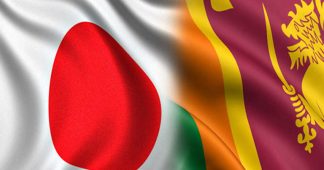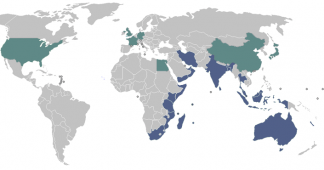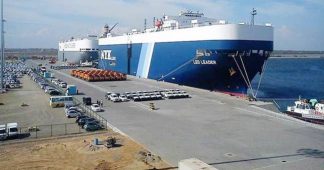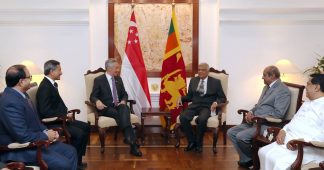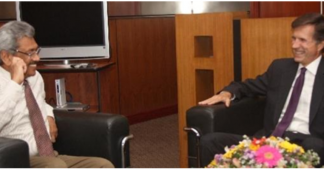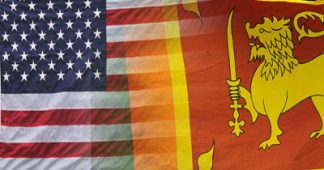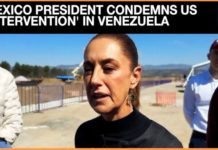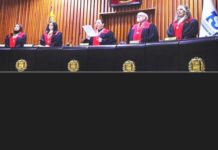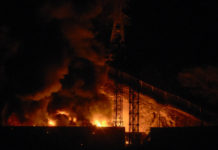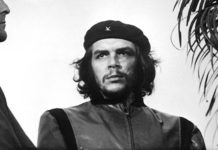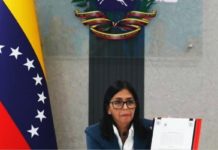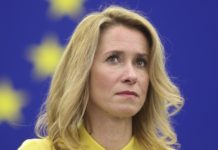By Lasanda Kurukulasuriya
In the aftermath of the IS-linked Easter bomb attacks that left the country riven, Sri Lanka’s government representatives at the highest level were seen going in different directions – both literally and figuratively speaking. President Maithripala Sirisena on Monday (13) suddenly left for Beijing to attend a conference on Asian civilisations. The next day (14) Foreign Minister Tilak Marapana left for Washington with another delegation. On Friday (16) the president returned to the country to announce that he had met Chinese President Xi Jinping. China had pledged a Rs 2.6 billion grant to help deal with the new terrorist threat, Rs 1.5 billion for the Sri Lanka Police, plus technical assistance to help improve intelligence operations, according to a statement from the President’s Media Division (PMD).
On Thursday Marapana met US Secretary of State Mike Pompeo, who condemned the attacks which also killed five Americans, and pledged US support for Sri Lanka in its fight against terrorism. He also met US National Security Advisor John Bolton.
The 3rd US-Sri Lanka Partnership Dialogue held the same day was co-chaired by Sri Lanka’s foreign minister and US Under Secretary for Political Affairs David Hale. Maritime security and related issues figured prominently in those discussions, with ‘counter terrorism’ now added:
“The United States offered to continue to expand counter-terrorism and maritime and border security cooperation with Sri Lanka,” Saturday’s joint statement from the Foreign Ministry said. The US’s recurring theme of a ‘free and open Indo Pacific’ also featured in the talks:
“The United States and Sri Lanka resolved to work together to foster peace and security and ensure a safe maritime domain in the Indian and Pacific Oceans through a rules-based order that ensures respect for international laws and norms. In this context, the U.S. strategy towards a free, open, and prosperous Indo-Pacific region, which ensures freedom of navigation, overflight, and unimpeded commerce was acknowledged as an important initiative.”
More importantly, at this discussion Sri Lanka has agreed to expand military to military cooperation with the US. “Both governments welcomed ongoing bilateral security sector cooperation, including U.S. support for de-mining, joint military engagements, Sri Lanka’s peacekeeping operations, human rights training for Sri Lankan officers, and visits by U.S. ships and military officials. The United States and Sri Lanka agreed to expand military-to-military cooperation” the statement said. The use of the term ‘joint engagements’ (rather than ‘joint exercises’) is significant as it suggests a combat role.
Lack of coordination
It would appear there has been no coordination in Colombo ahead of these high level meetings with the world’s most powerful political figures.
While the president is Sri Lanka’s Head of State, Commander in Chief of the Armed Forces and Minister of Defence, all other cabinet portfolios including that of foreign ministry are held by the UNP-led government group headed by Prime Minister Ranil Wickremesighe. The divide between the president and prime minister which was increasingly evident with every passing day, is now glaringly visible in the conduct of foreign relations.
The present governmental dysfunction has its roots in the constitutional crisis from October to December 2018. There was a critical change in the composition of government following the centre-left SLFP-led UPFA’s exit from the ill-fated yahapalana coalition. The president, who is also leader of the SLFP, failed in his bid to sack the prime minister and hold fresh elections. Following a court ruling saying the president’s dissolution of parliament was unconstitutional, the president was left in a much weaker position – even when it came to making ministerial appointments that he is empowered to, under the 19th amendment. Wickremesinghe was reinstated as prime minister and Sirisena was forced to submit to the UNP’s choices for most of the ministerial positions. Exceptions were the portfolios he retained for himself.
The only UNP-proposed appointment on which the president will not budge, it appears, is the demand for Field Marshall Sarath Fonseka be made minister of Law and Order. This relates to an investigation into a recently exposed alleged plot to assassinate the president. Fonseka was mentioned as a person involved in it (along with Wickremesinghe) by a witness called Namal Kumara, in his remarks to the media. It is intriguing, in the context of the new terrorism that seems to have been gestating in the East, that Namal Kumara had earlier made assorted allegations about ‘conspiracies’ to create communal strife in the Eastern Province. Kumara himself was arrested last week in connection with the rash of violence in the North Western Province.
High price to pay
It may be seen that the personal tensions seething beneath the surface of a semblance of normalcy, have hopelessly destabilized the government. And now, at a time when a concerted effort is needed to face an unprecedented situation, this internal disconnect may come at a high price.
With a UNP cabinet holding sway there are doubts as to whether meaningful follow-up action will be taken regarding serious allegations made against certain Muslim politicians in connection with the recent terror attacks. That’s because the UNP depends on the support of parties representing minority Muslims and Tamils – the ACMC, SLMC and the TNA (plus the JVP) for its political survival. The butter-fingers approach was seen in the prime minister’s move to allow madrasas – where extremist ideological indoctrination is suspected to take place – to be brought under the Ministry of Muslim Religious Affairs, and not under the Education Ministry.
Deepening military ties with the US
When Western intelligence personnel surged into the country in the wake of the Easter terror attacks, it was against the backdrop of military ties with the US that had been steadily deepening since 2015, with multiple ship visits, training exercises, and most recently an operation to ferry supplies to a US aircraft carrier in the Indian Ocean, using Sri Lanka’s ports and airport.
The government has been less than forthcoming about the nature of these ties and agreements entered into. The foreign ministry confirmed that the lapsed Acquisition and Cross Service Agreement (ACSA) was renewed in 2017. It is not clear why the government was so cagey about admitting to this, and avoided tabling it in parliament although multiple queries were raised by Opposition MPs. The ACSA between the two states reportedly provides for ‘logistical support, supplies and services’ to each other’s militaries. While the support is said to be ‘reciprocal’ it may be inferred that the agreement is weighted heavily in favour of the US, since Sri Lanka does not engage in military adventures abroad during which such support might be useful. The US on the other hand is intensely focused on the Indian Ocean region, and Sri Lanka in particular, on account of its strategic location near vital sea lanes.
Another item mentioned as a subject to be discussed during foreign minister Marapana’s talks in Washington, according to a news report ahead of his departure, was a ‘Visiting Forces Agreement.’ A Visiting Forces Agreement (VFA) is a version of a Status of Forces Agreement (SOFA) that only applies to troops temporarily in a country, according to Wikipedia. As a matter of interest, Philippines President Rodrigo Duterte in 2016 threatened to abrogate a VFA the Philippines had with the US, but according to rappler.com the 1999 treaty can only be repealed by an Act of the US Congress. The joint statement on the Sri Lanka-US talks did not refer to any ‘Visiting Forces Agreement,’ but said that ‘both governments’ welcomed “visits by US ships and military officials.”
Given the geopolitical tensions in the Indian Ocean region, one of the US’s goals in getting Sri Lanka to sign military agreements with the US would be, presumably, to pre-empt China from extending its footprint by locking Sri Lanka into such agreements. Pledging commitment to a ‘shared goal of a free and open Indo Pacific’ might then be de-coded to mean ‘jointly resisting Chinese influence in the region.’
Relationship with China
China is aggressively pursuing its Belt and Road initiative, with ambitious infrastructure investments across the globe to link Asia with Africa and Europe. As China’s BRI juggernaut begins to look unstoppable, the US has identified it the number one threat to its global hegemony.
Sri Lanka’s relationship with the Asian giant is very different from that of the US. Sri Lanka’s links with China go back to ancient times. Although there is heavy reliance on Chinese investment on the economic front, China has not sought to project its military might in this island. When Sri Lanka was fighting LTTE terror it was China that supplied much needed weapons, at a time when Western countries refused to do so citing human rights concerns. Now, at President Sirisena’s request, China has given a generous grant to help combat terrorism, and said that “a Chinese technical team will be sent to Sri Lanka soon.” According to the PMD statement this was in response to the president’s plea that “the country does not have technological expertise and equipment to trace the individuals who are fanning the flames of terrorism by propagating false information through social media.” The discussion “also focused on strengthening cooperation in the defence sector and sharing intelligence between the two countries.” This is a new development in the relationship.
While it is true that Sri Lanka needs international help at this time, the absence of a studied and well-calibrated approach on the part of the political leadership in meeting the new challenge of IS-connected terror, is compounded by the fact that the prime minister and president are pulling in different directions, not just domestically but now, in the international arena as well.
